If you’ve ever watched a movie or a TV show, you’ve probably noticed how the sound quality can make or break the viewing experience. That’s where the boom operator comes in.
The boom operator is a crucial member of the film production team responsible for capturing high-quality audio during filming.
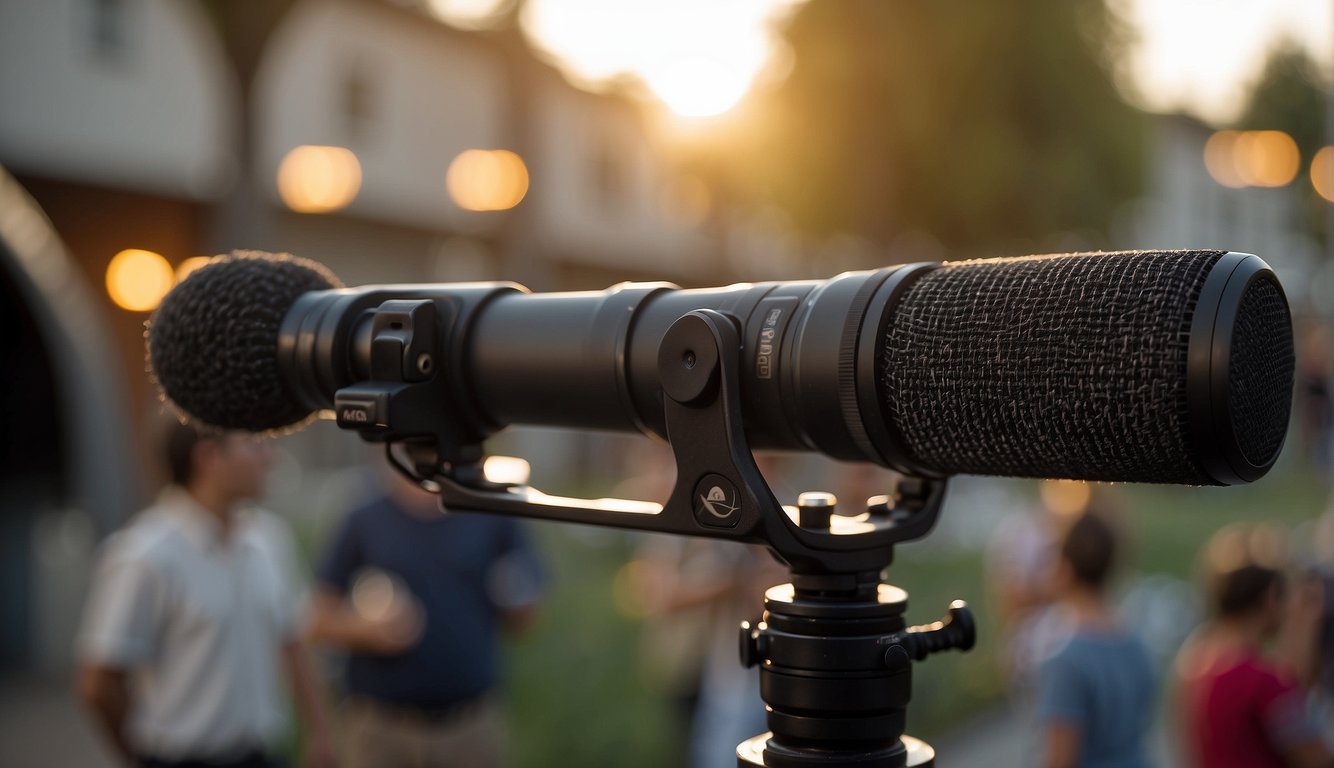
The boom operator’s primary role is to hold and operate the boom microphone, which is a long pole with a microphone attached to the end.
The boom operator works closely with the sound mixer to ensure the audio captured is of the highest quality possible. This involves positioning the microphone in the right place, adjusting the levels, and making sure that unwanted sounds are not picked up.
In addition to operating the boom microphone, the boom operator may also be responsible for setting up and maintaining other audio equipment on set. This includes placing and hiding microphones on actors, running cables, and ensuring all equipment is in good working order.
Overall, the boom operator plays a crucial role in ensuring that the audio captured during filming is of the highest quality possible.
Table of contents
The Role of a Boom Operator
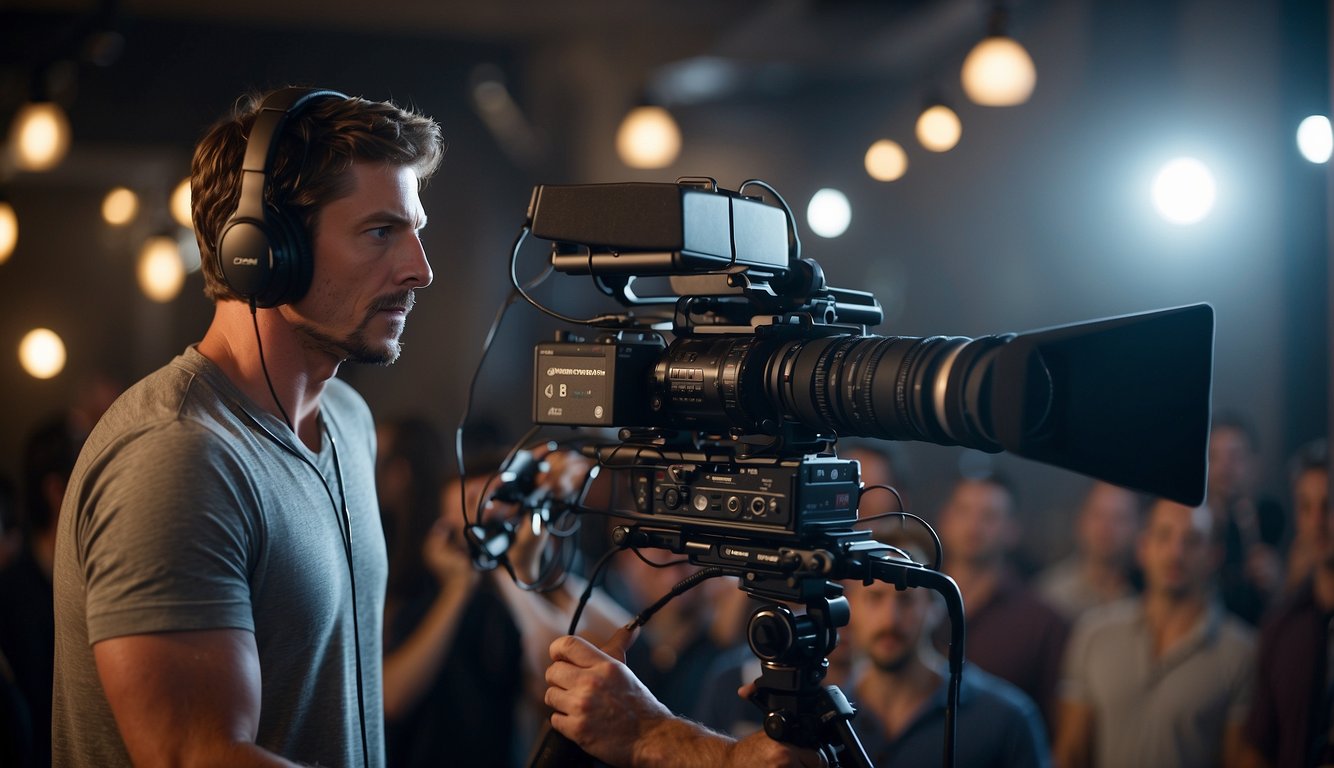
As a boom operator, you play a crucial role in ensuring that the audio quality of a film is top-notch. You are responsible for holding and positioning a boom microphone, which is used to capture dialogue and other sounds on set.
Key Responsibilities
Your primary responsibility as a boom operator is to capture high-quality audio free of unwanted noise or distortion. This involves positioning the boom microphone in such a way that it is close enough to the actors to capture their dialogue clearly but not so close that it appears in the shot.
In addition to capturing dialogue, you may also be responsible for recording other sounds on set, such as footsteps, doors opening and closing, and other ambient noise. You must be able to work quickly and efficiently, as time is often of the essence on a film set.
Collaboration with Production Sound Mixer and Director
As a key member of the sound department, you will work closely with the production sound mixer and director to ensure that the audio quality of the film meets their expectations. You will need to take direction from the sound mixer and be able to anticipate the needs of the director, adjusting the position of the boom microphone as necessary to capture the best possible audio.
Importance in Capturing High-Quality Audio
The role of the boom operator is critical in capturing high-quality audio for a film. The boom microphone is often the primary source of audio on set, and it is up to you to ensure that the audio is captured as cleanly and clearly as possible.
Your work as a boom operator is essential to the success of the film, and it requires a high level of skill and attention to detail. As a valued member of the sound team, you will work closely with other crew members to ensure that the audio quality of the film is of the highest possible standard.
The Boom Operator’s Toolkit
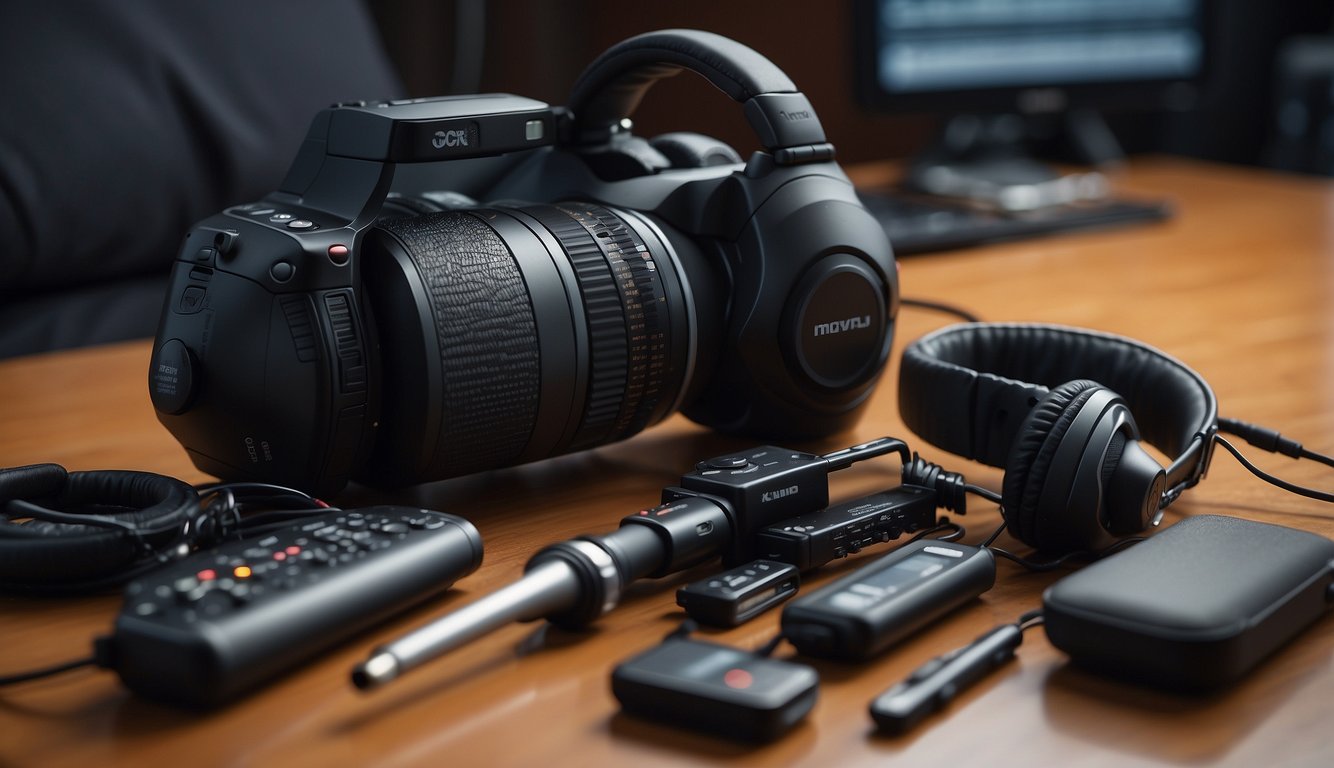
As a boom operator, you must have a toolkit with all the necessary equipment to capture high-quality audio on set. Here are the essential items that should be in your toolkit:
Microphones and Boom Poles
The most important tool in your kit is the microphone. You need to have a variety of microphones to choose from, depending on the scene and the location.
Some popular microphones boom operators use include shotgun microphones, lavalier microphones, and handheld microphones. You also need to have a boom pole, which holds the microphone close to the actors without appearing in the shot.
Sound Equipment and Accessories
In addition to microphones and boom poles, you must have other sound equipment and accessories in your toolkit. This includes headphones, which help you monitor the audio as you capture it.
You also need a mixer, which allows you to adjust the levels of different audio sources. Other accessories you might need include windscreens, shock mounts, and cables.
Maintenance and Organization
Maintaining and organizing your equipment is also important to being a boom operator. You must keep your microphones and other equipment clean and in good condition. You also need to organize your toolkit to find the equipment you need on set quickly. A good way to do this is to use a bag or case with compartments for different items.
In conclusion, a boom operator must have the right equipment and keep it organized and well-maintained. With the right tools and a well-organized toolkit, you can capture high-quality audio on set and ensure that the sound in the final product is clear and professional.
Skills and Qualities of a Successful Boom Operator
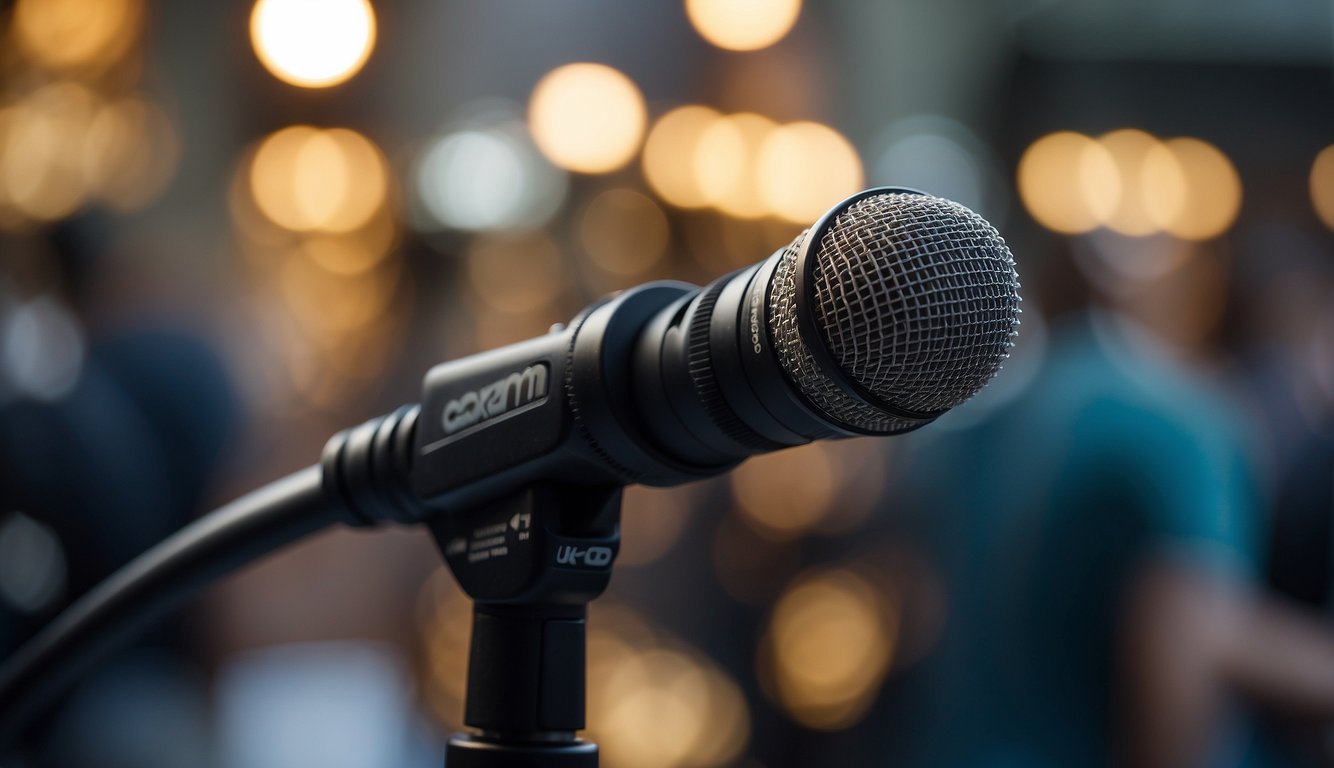
As a boom operator, you play a critical role in the production of a film. You are responsible for capturing high-quality audio that complements the visual aspect of the film.
To be successful in this role, you must have a combination of skills and qualities that enable you to carry out your duties effectively.
Physical Fitness and Balance
One of the key requirements of a boom operator is physical fitness. You will need to carry heavy equipment for extended periods, often in challenging environments. Therefore, it is important to maintain good physical health and strength.
Additionally, you will need to have good balance, as you will be required to hold the boom pole steady for long periods, often in awkward positions.
Attention to Detail and Focus
As a boom operator, you must have excellent attention to detail and focus. You must monitor the audio levels and ensure the sound quality is consistent throughout the production.
Additionally, you must be alert to any background noise or interference that may affect the audio quality.
Communication and Teamwork
Communication skills are essential for a boom operator. You will need to be able to communicate effectively with the director, sound mixer, and other members of the production team.
Additionally, you will need to work closely with the camera operator to ensure that the boom pole is in the right position for each shot.
Teamwork is also crucial, as you will need to work closely with other production team members to ensure that the audio and visual aspects of the film are aligned.
In summary, to be a successful boom operator, you must possess a combination of physical fitness, attention to detail, focus, communication skills, and teamwork. These skills and qualities will enable you to carry out your duties effectively and contribute to the success of the film production.
Working on Set
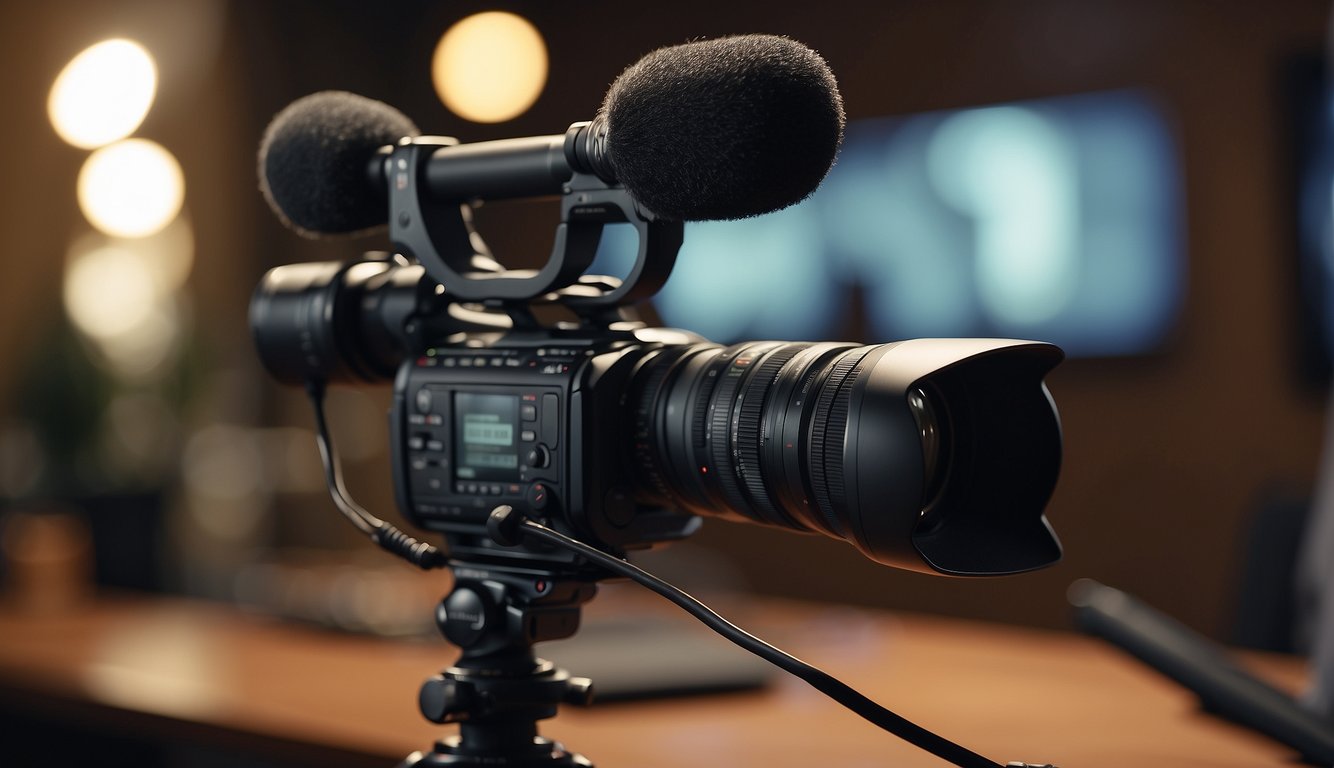
As a Boom Operator on a film set, you will be an integral part of the film crew, working closely with actors, camera operators, and other crew members. Your role will involve a range of responsibilities, including interacting with actors and crew, navigating the film set environment, and adapting to different scenes and challenges.
Interacting with Actors and Crew
As a Boom Operator, you will be responsible for capturing high-quality audio during filming. This involves working closely with actors to record their dialogue clearly and accurately. You will also need to communicate effectively with other crew members, such as the camera operator, to ensure your equipment is positioned correctly and capturing the best possible audio.
Navigating the Film Set Environment
Working on a film set can be a fast-paced and challenging environment, with multiple scenes being filmed simultaneously.
As a Boom Operator, you will need to be able to navigate the set quickly and efficiently, moving your equipment from one location to another as required. You will also need to be aware of potential hazards on the set, such as cables and other equipment, and take steps to ensure your safety and the safety of others.
Adapting to Different Scenes and Challenges
Filming can present a range of challenges, from difficult lighting conditions to noisy or crowded locations.
As a Boom Operator, you will need to be able to adapt to these challenges and find ways to capture high-quality audio in any situation. This may involve using different equipment or techniques, such as using a different microphone or adjusting the positioning of your equipment.
In summary, working as a Boom Operator on a film set requires a range of skills and abilities, including the ability to interact effectively with actors and crew, navigate a fast-paced and challenging environment, and adapt to different scenes and challenges. With the right training and experience, you can become a valuable member of any film crew and help to create high-quality films that audiences will love.
Career Path and Advancement
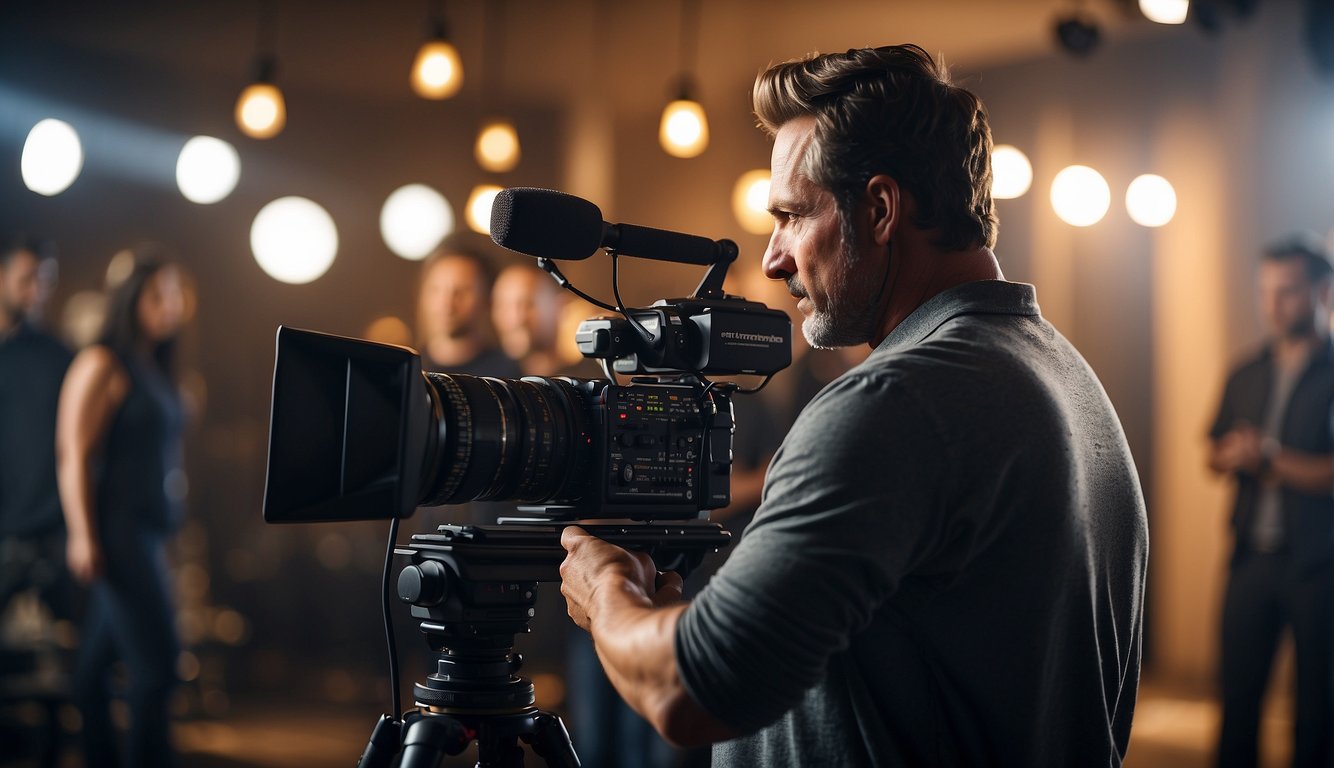
As a Boom Operator, your career path and advancement opportunities largely depend on your education, experience, and professional network.
Here are some steps you can take to build a successful career in this field.
Education and Training
While formal education is not always required for entry-level positions, having a degree or certificate in film production, audio engineering, or a related field can be beneficial. It can give you a solid foundation in the technical aspects of sound recording and help you develop the skills needed to operate and maintain audio equipment.
In addition to formal education, you can also pursue training and certification programs offered by industry organizations such as the Society of Motion Picture and Television Engineers (SMPTE) or the Audio Engineering Society (AES). These programs can help you stay current with the latest technology and industry standards and demonstrate your expertise to potential employers.
Building Experience and a Professional Network
One of the best ways to build experience and a professional network in the film industry is to work as a Production Assistant or Assistant Sound Mixer on film sets. This will allow you to learn from experienced professionals, gain practical skills, and make valuable connections.
You can also participate in internships, volunteer work, or independent film projects to gain hands-on experience and build your portfolio. Networking events, industry conferences, and online forums can also be great resources for meeting new people, learning about job opportunities, and staying up-to-date with industry trends.
Finding Work and Growing a Portfolio
Once you have some experience and a solid portfolio, you can start looking for work as a Boom Operator. Entry-level positions may be available through job boards, staffing agencies, or personal connections. As you gain more experience, you can start taking on more challenging projects and working with higher-profile clients.
Consider creating a demo reel or website highlighting your best projects and skills to grow your portfolio and showcase your work. You can also ask for feedback from industry professionals and use it to improve your craft and expand your network.
Following these steps and staying committed to your craft, you can build a successful career as a Boom Operator in the film industry.
Technical Aspects and Sound Design
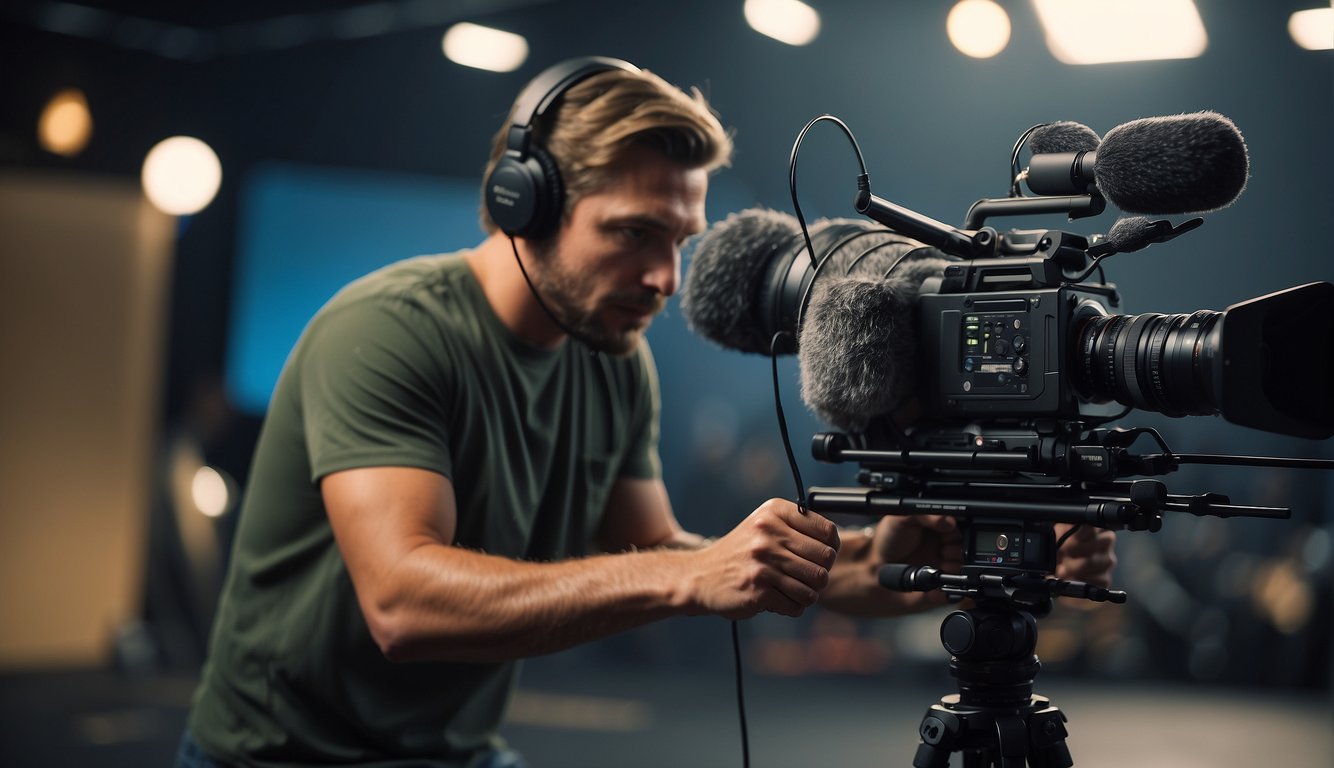
As a Boom Operator, you play a crucial role in capturing high-quality sound for film and television productions.
Technical skills, knowledge of sound recording techniques, and collaboration with the sound mixer and editor are key aspects of your job. In this section, we’ll explore the technical aspects of your role and how they contribute to sound quality and design.
Understanding Sound Recording Techniques
As a Boom Operator, you must have a solid understanding of sound recording techniques. This includes knowledge of microphone types, placement, and polar patterns. You must also be able to identify and minimize unwanted noise, such as wind, traffic, or other ambient sounds that may interfere with the recording.
Working with the Sound Mixer and Editor
Collaboration with the sound mixer and editor is essential for achieving the desired sound quality and design. You must communicate effectively with them to ensure that the sound is captured correctly and that any issues are addressed promptly. This includes monitoring the sound levels and adjusting the microphone placement as needed.
Contributing to Sound Quality and Design
Your role as a Boom Operator is critical to a production’s overall sound quality and design. You must work closely with the sound mixer and editor to ensure the sound is consistent and of the highest quality. This includes contributing to the creative aspects of the sound design, such as selecting appropriate sound effects and adjusting the sound levels to create a desired effect.
As a Boom Operator, your technical skills, knowledge of sound recording techniques, and collaboration with the sound mixer and editor are essential to achieving high-quality sound for film and television productions. Your contribution to sound quality and design is critical to the success of any production, and it’s important to approach your role with confidence and knowledge.
The Industry and Professional Life
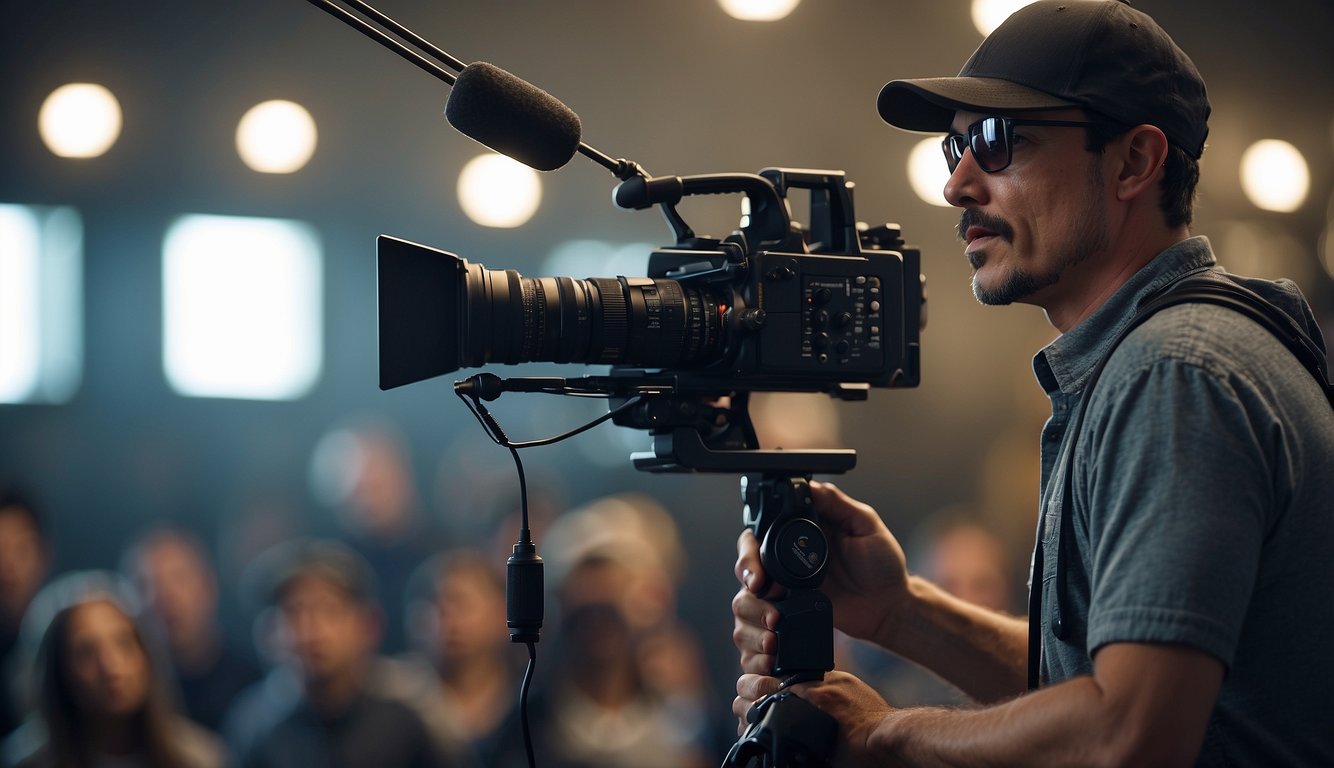
Employment in Film and Television Production
As a boom operator, you will work in the film and television production industry. This industry is known for being highly competitive, and job opportunities can be scarce. However, you can find employment in this field if you have the right skills and experience.
Most boom operators work on a freelance basis, which means that they are hired for specific projects. This can make finding steady work challenging but also allow for a flexible schedule. Some boom operators may also work for production companies or studios, which may offer more stable employment.
The Role of Unions and Entertainment Law
In the film and television production industry, unions play a significant role in protecting the rights and interests of workers. As a boom operator, you may be a member of a union such as the International Alliance of Theatrical Stage Employees (IATSE).
Entertainment law is also an important aspect of the industry. This area of law deals with legal issues related to the entertainment industry, including contracts, intellectual property, and labor disputes. As a boom operator, you may need to be familiar with entertainment law and how it affects your work.
Work Life Balance and Schedule
Working in the film and television production industry can be demanding, with long hours and tight deadlines. As a boom operator, you may work on location or in a studio, and your schedule may vary depending on the project.
Maintaining a work-life balance can be challenging in this industry, but it is important for your well-being. It is essential to take breaks and prioritize self-care to avoid burnout.
Salary
The salary for a boom operator can vary depending on several factors, including experience and location. According to the Bureau of Labor Statistics, the median annual wage for sound engineering technicians, which includes boom operators, was $53,390 as of May 2020. However, salaries can range from around $30,000 to over $100,000 annually.
Beyond the Boom: Related Roles and Opportunities
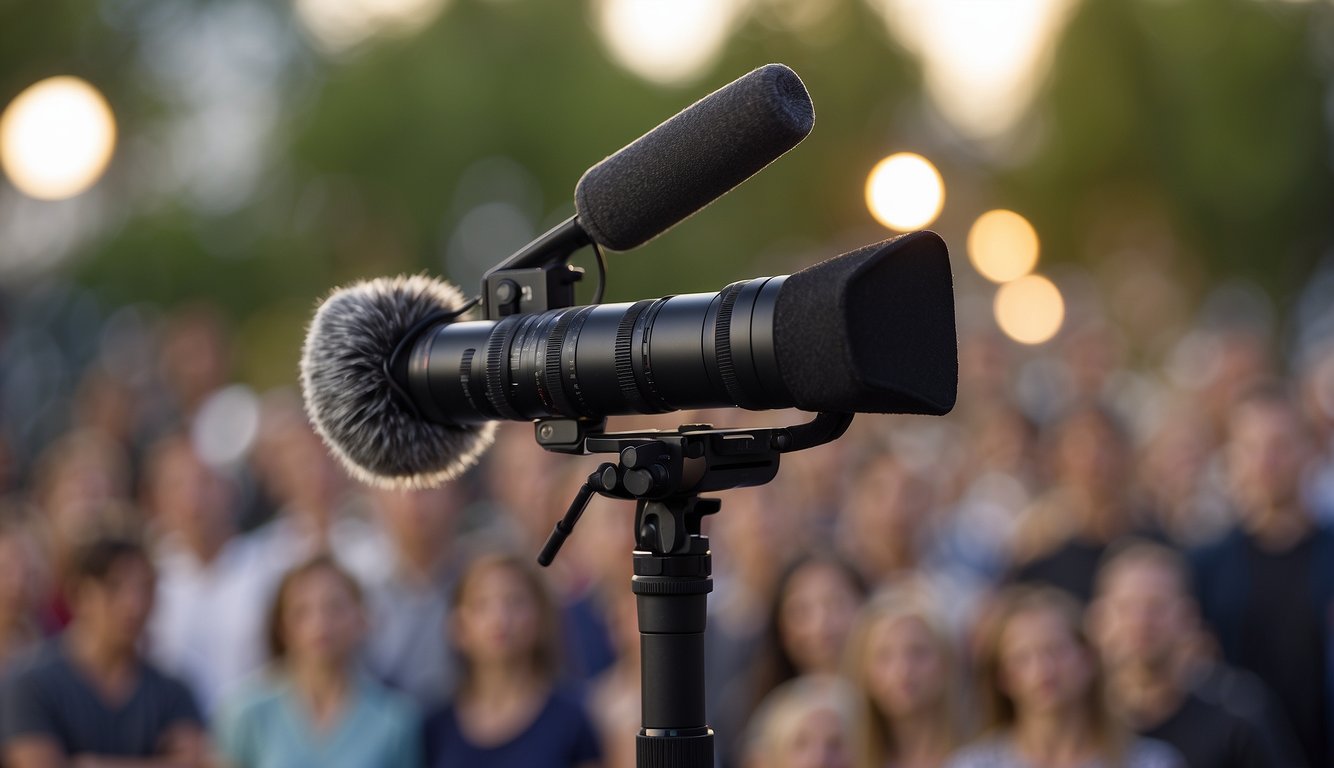
As a boom operator, you are an essential part of the production sound crew, but there are other related roles and opportunities in the field of film sound that you may be interested in pursuing. Here are a few examples:
Utility Sound Technician and Sound Recordist
If you want to expand your skill set and take on more responsibility on set, you may consider becoming a utility sound technician or sound recordist. Utility sound technicians are responsible for setting up and maintaining the sound equipment, while sound recordists are responsible for recording the dialogue and other sound effects during filming. Both roles require a strong understanding of sound equipment and techniques and the ability to work well under pressure.
Moving Up to Production Sound Mixer
If you have several years of experience as a boom operator and want to take the next step in your career, you may consider becoming a production sound mixer.
As a production sound mixer, you will oversee the entire sound department, including the boom operators, utility sound technicians, and sound recordists. You will work closely with the director and the rest of the production team to ensure that the film’s sound quality is top-notch.
Collaborating with Gaffers and Electricians
As a boom operator, you work closely with the camera department to ensure the microphone is in the right position and doesn’t interfere with the shot. However, you may also collaborate with gaffers and electricians on set.
Gaffers are responsible for setting up and controlling the lighting on set, while electricians are in charge of the electrical equipment.
As a boom operator, you may need to work closely with these departments to ensure that the sound equipment is properly powered and that there are no electrical interference issues.
In conclusion, there are many related roles and opportunities in the field of film sound that you may be interested in pursuing. Whether you want to expand your skill set, take on more responsibility, or work with other departments on set, there is something for everyone in this exciting and challenging field.
